Embed presentation
Download to read offline
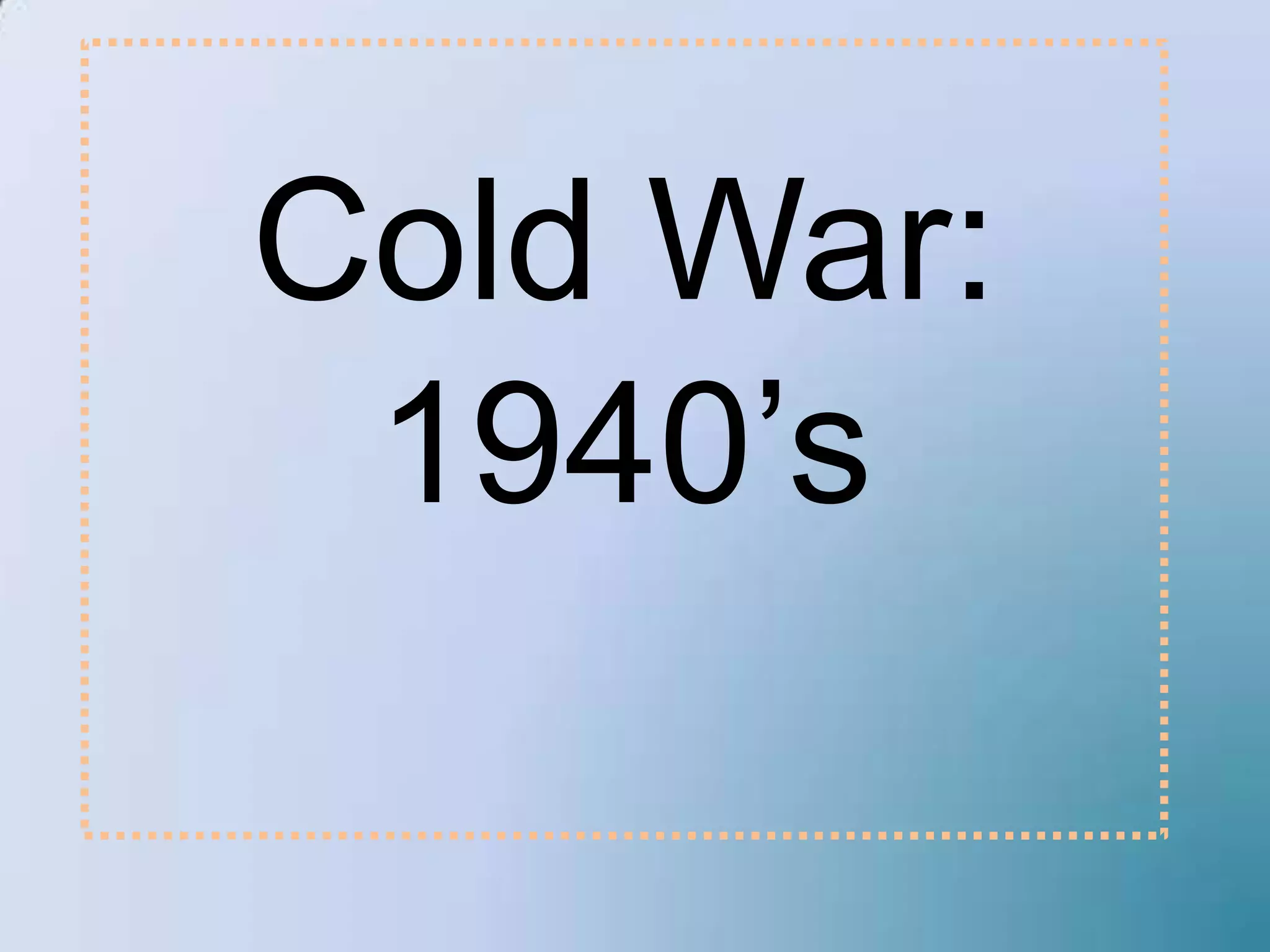
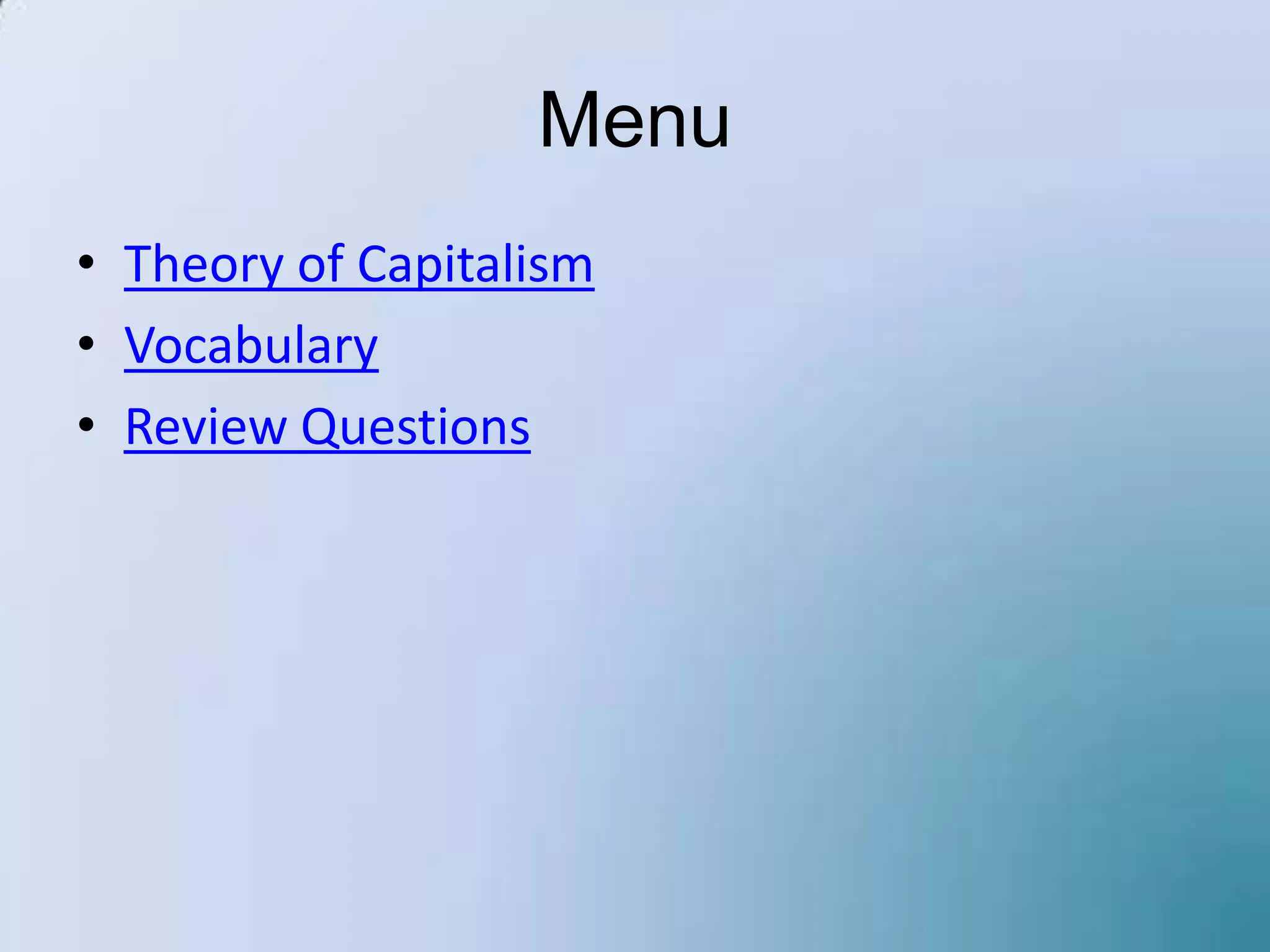
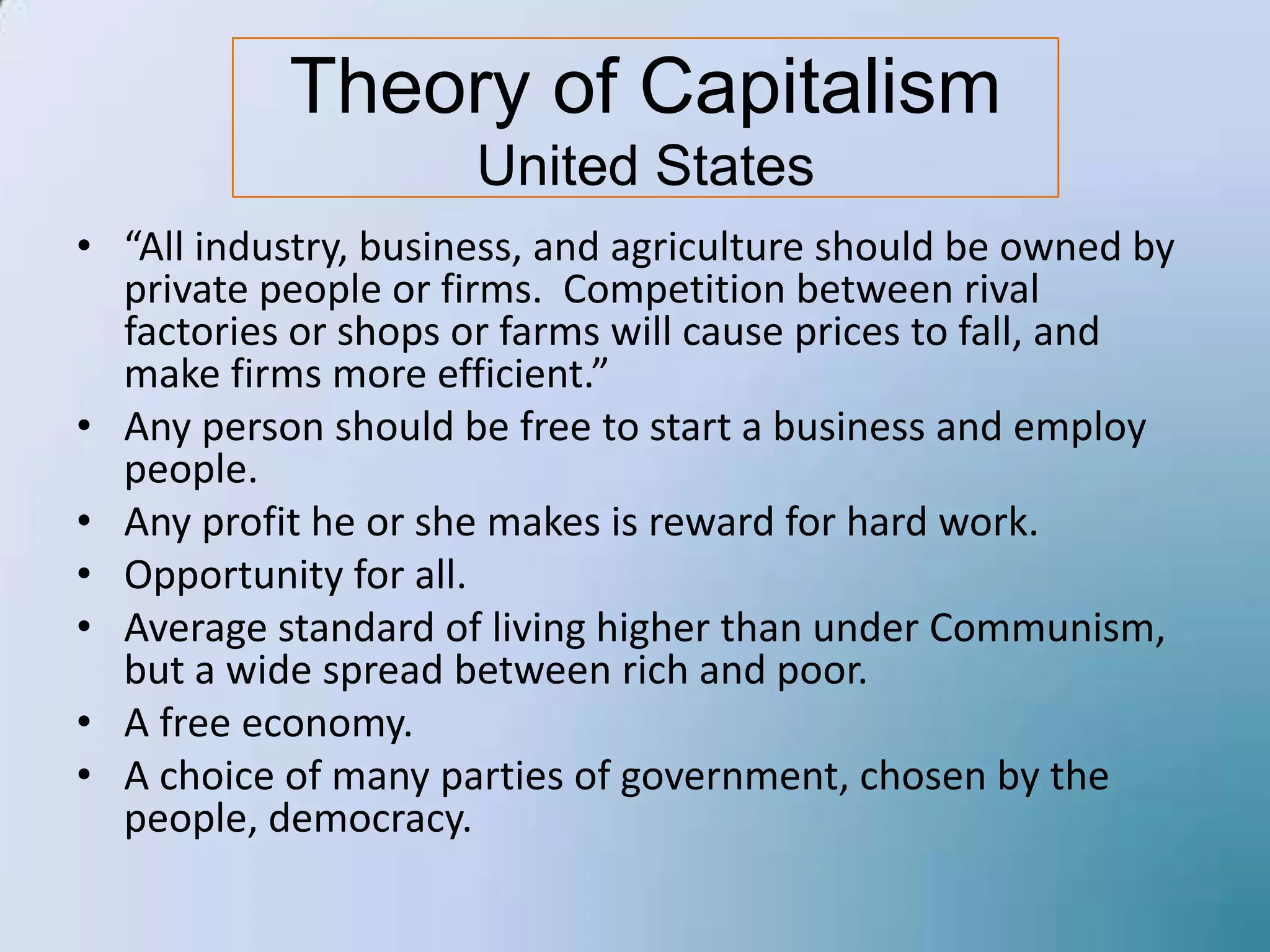
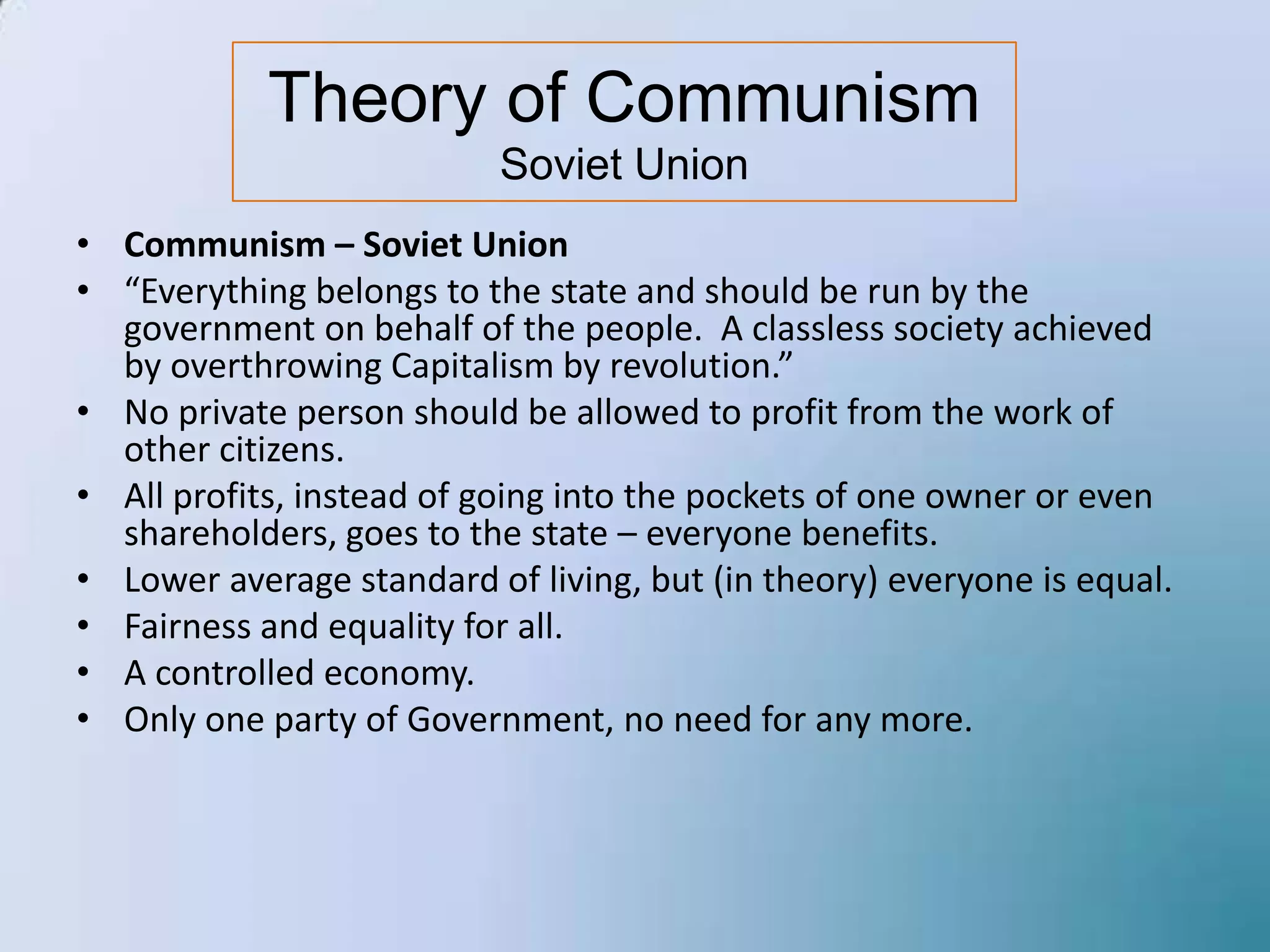
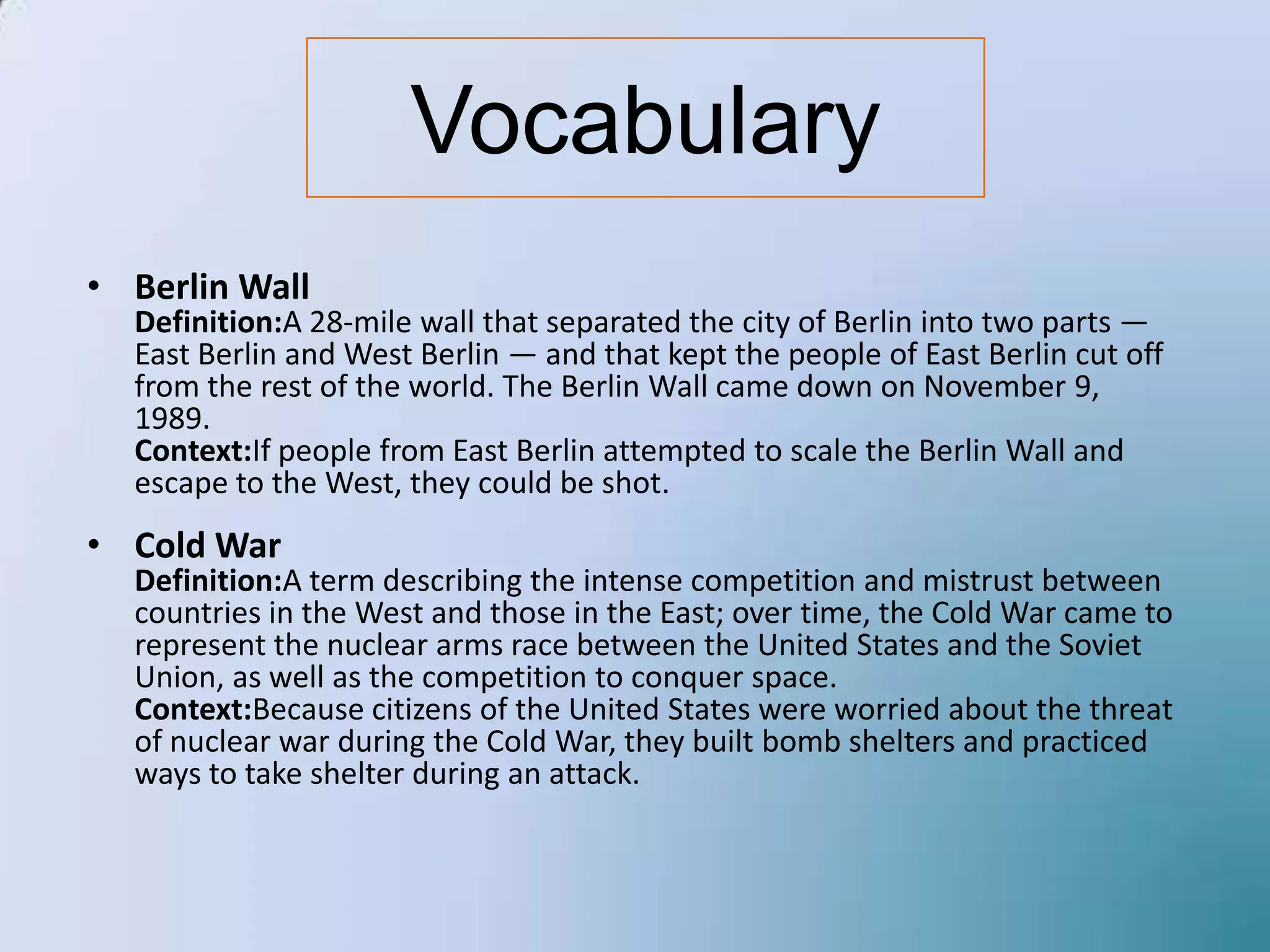
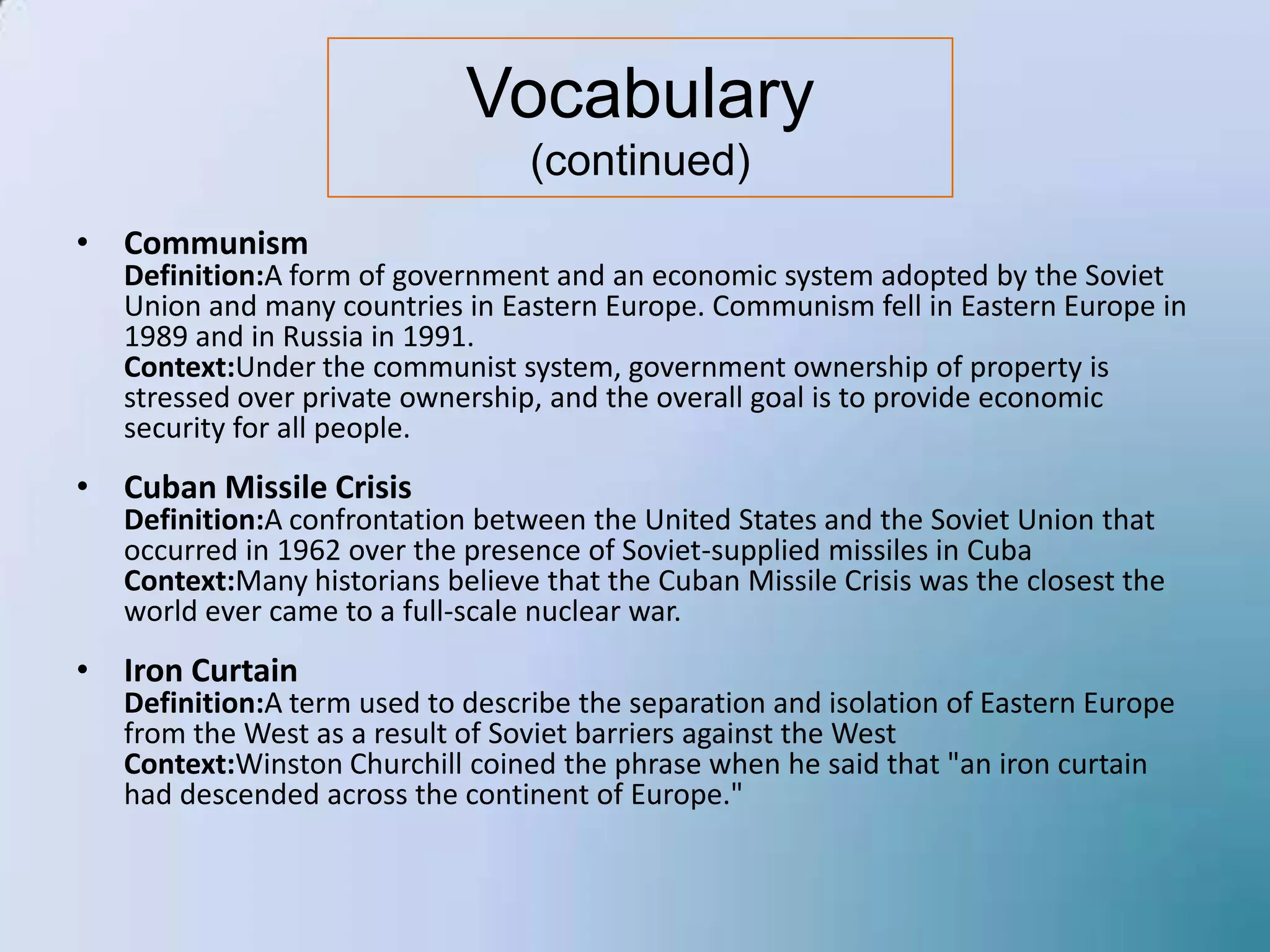

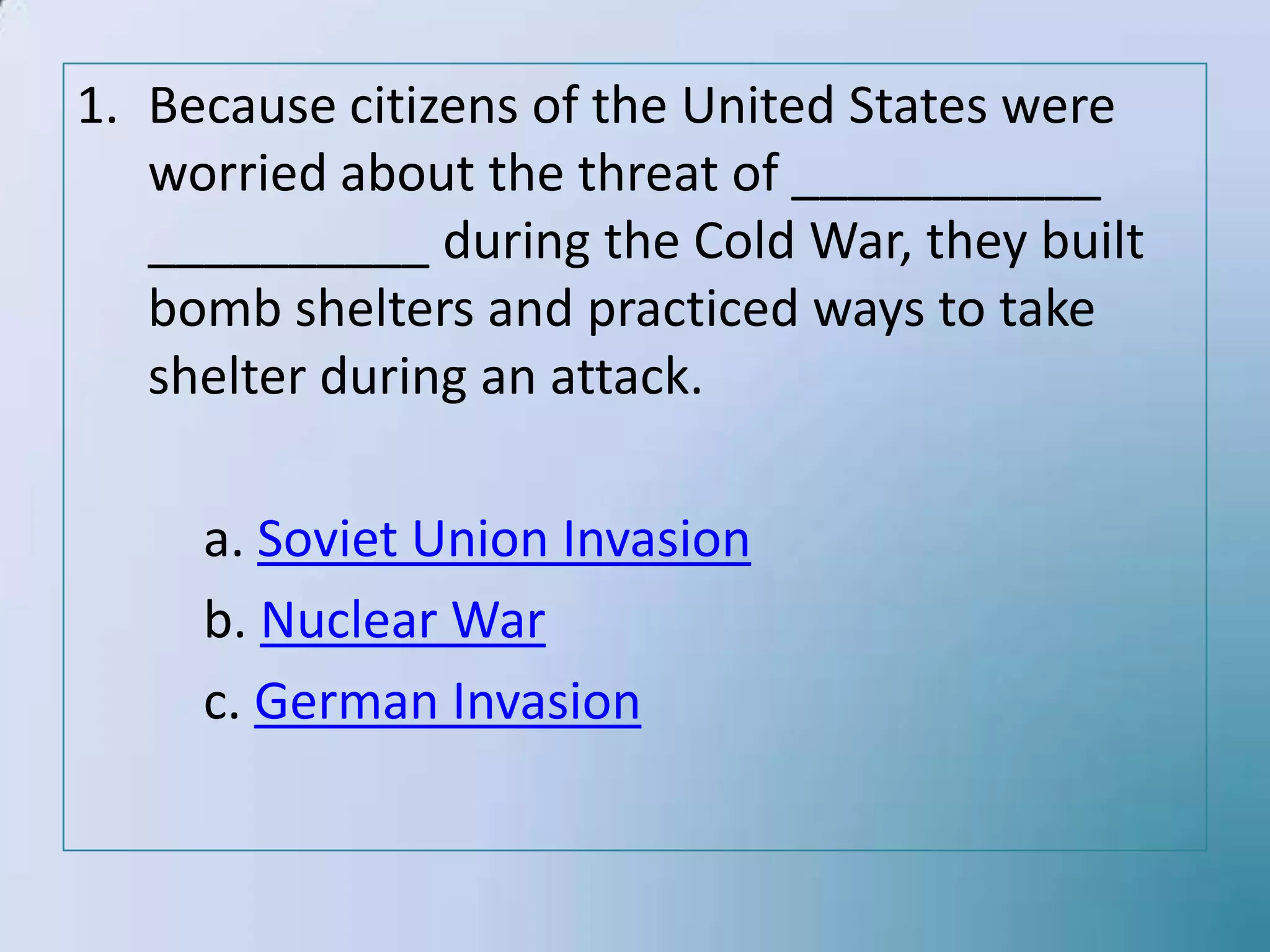
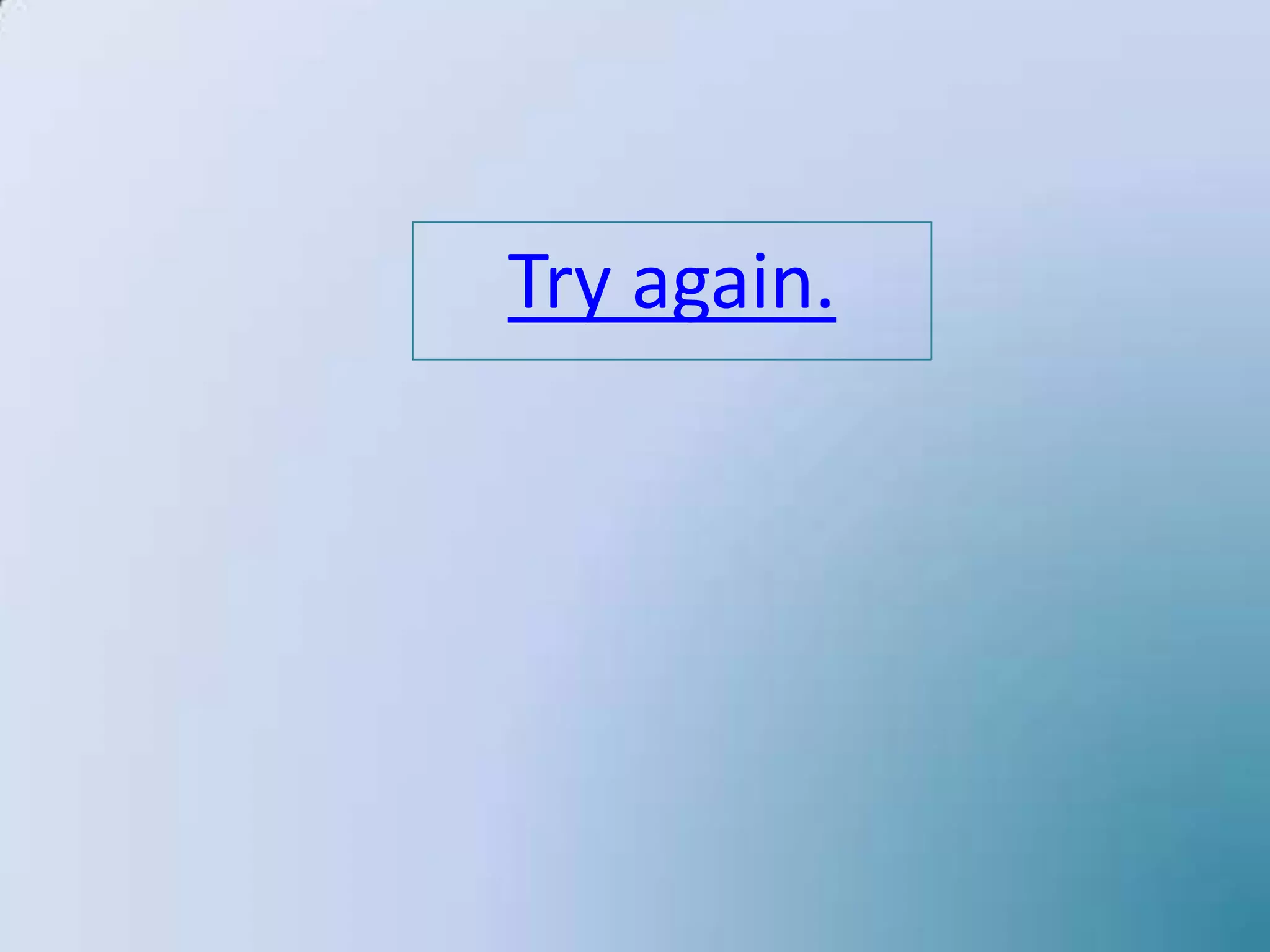
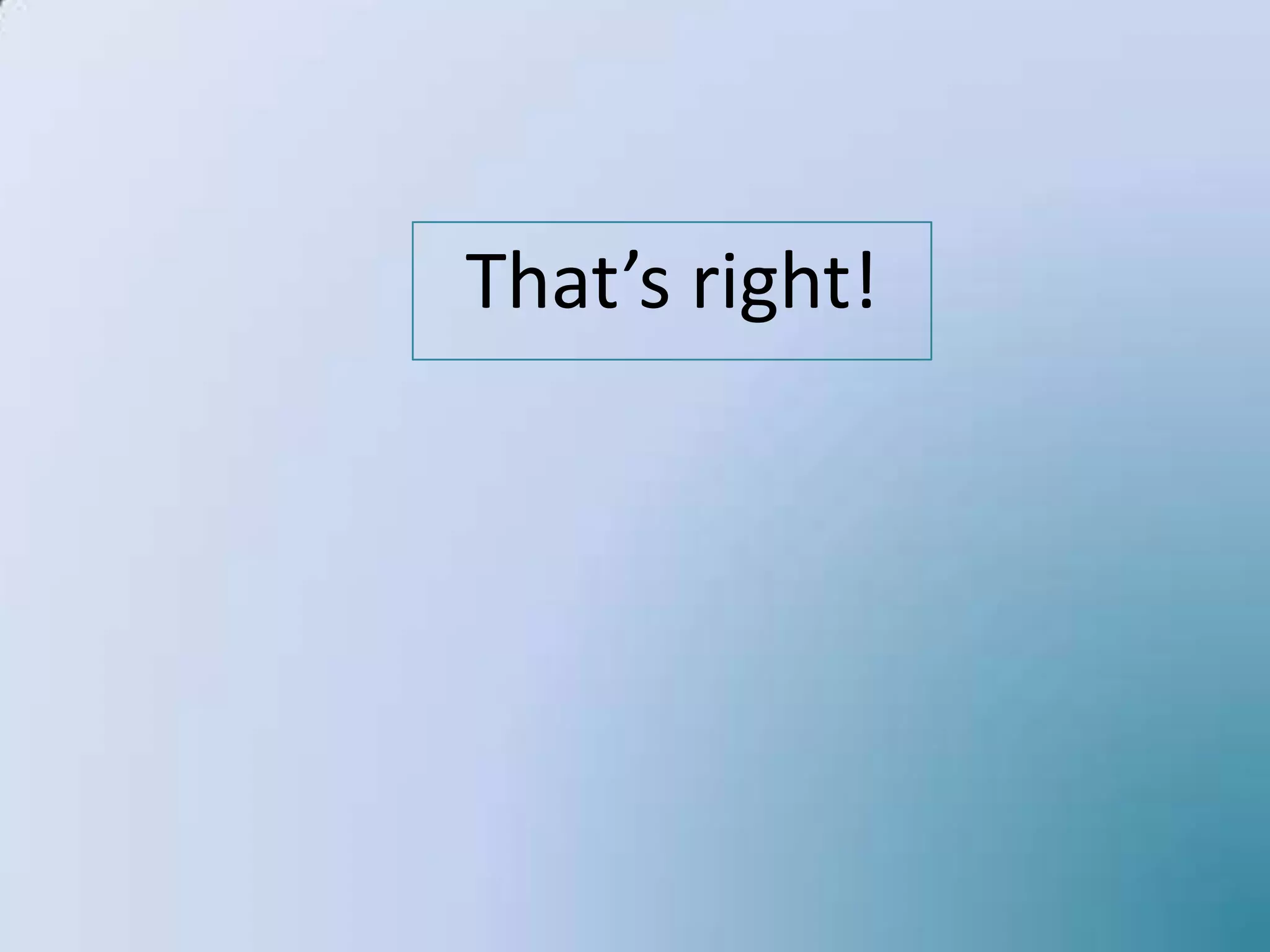
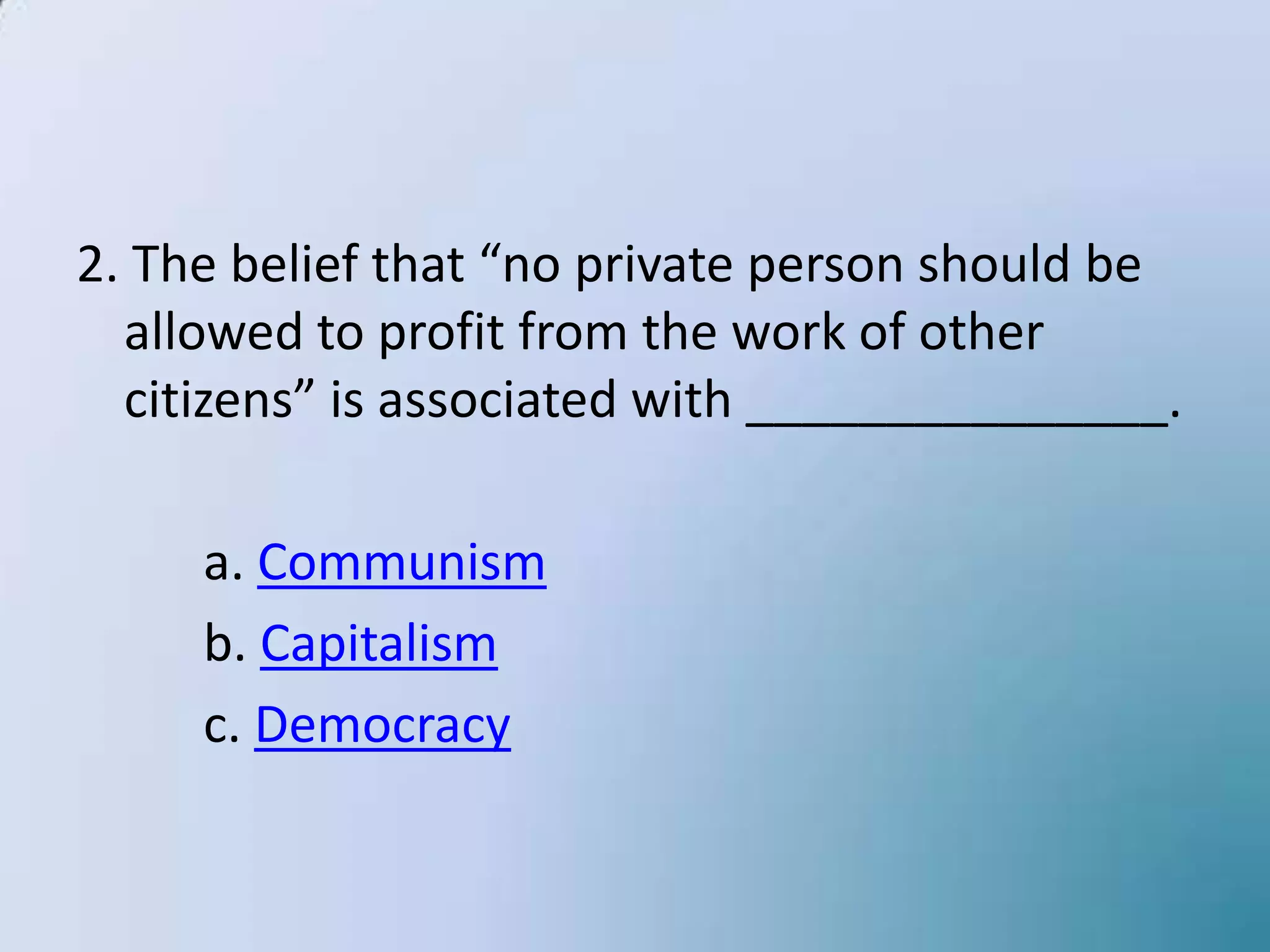
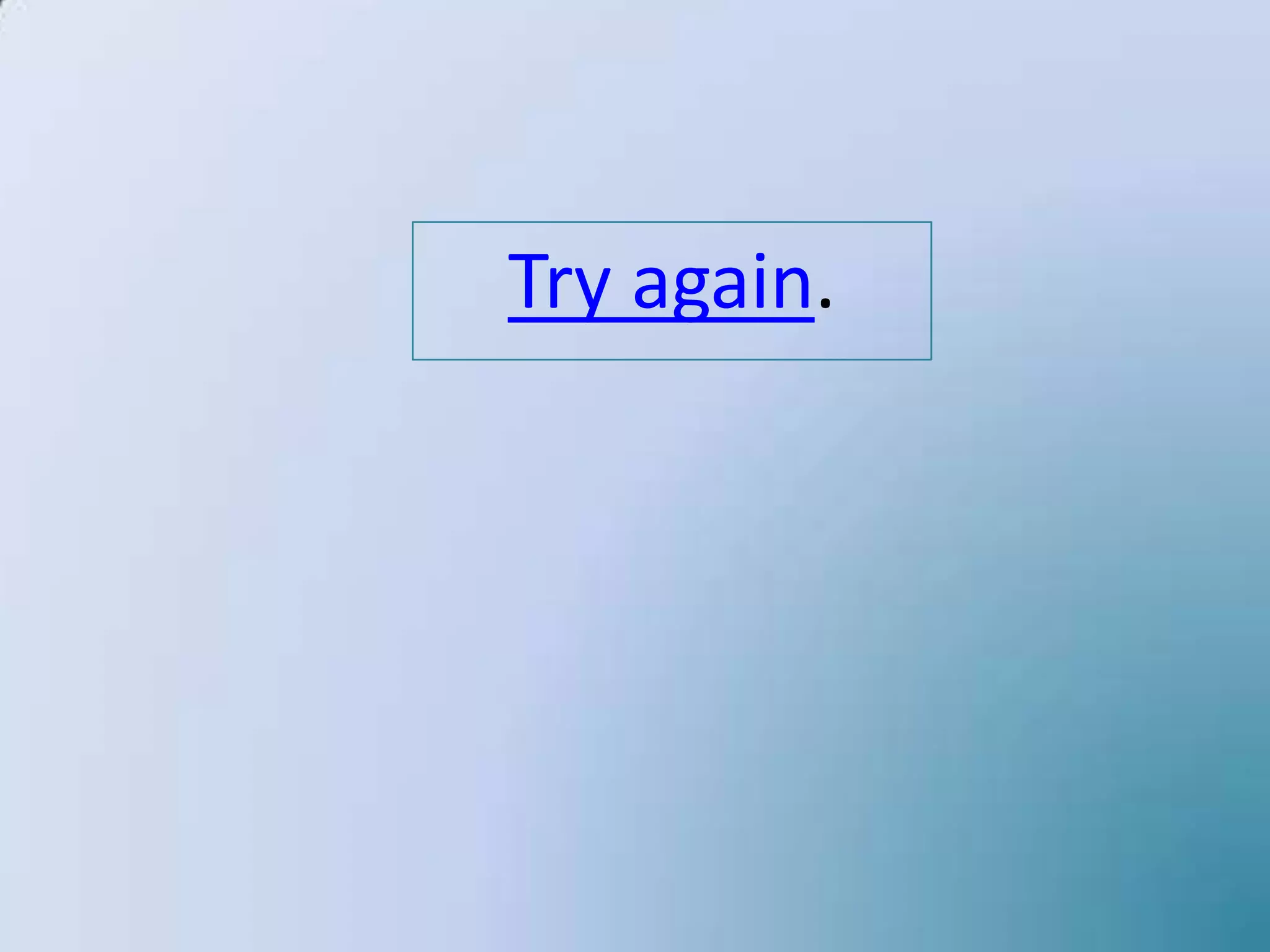
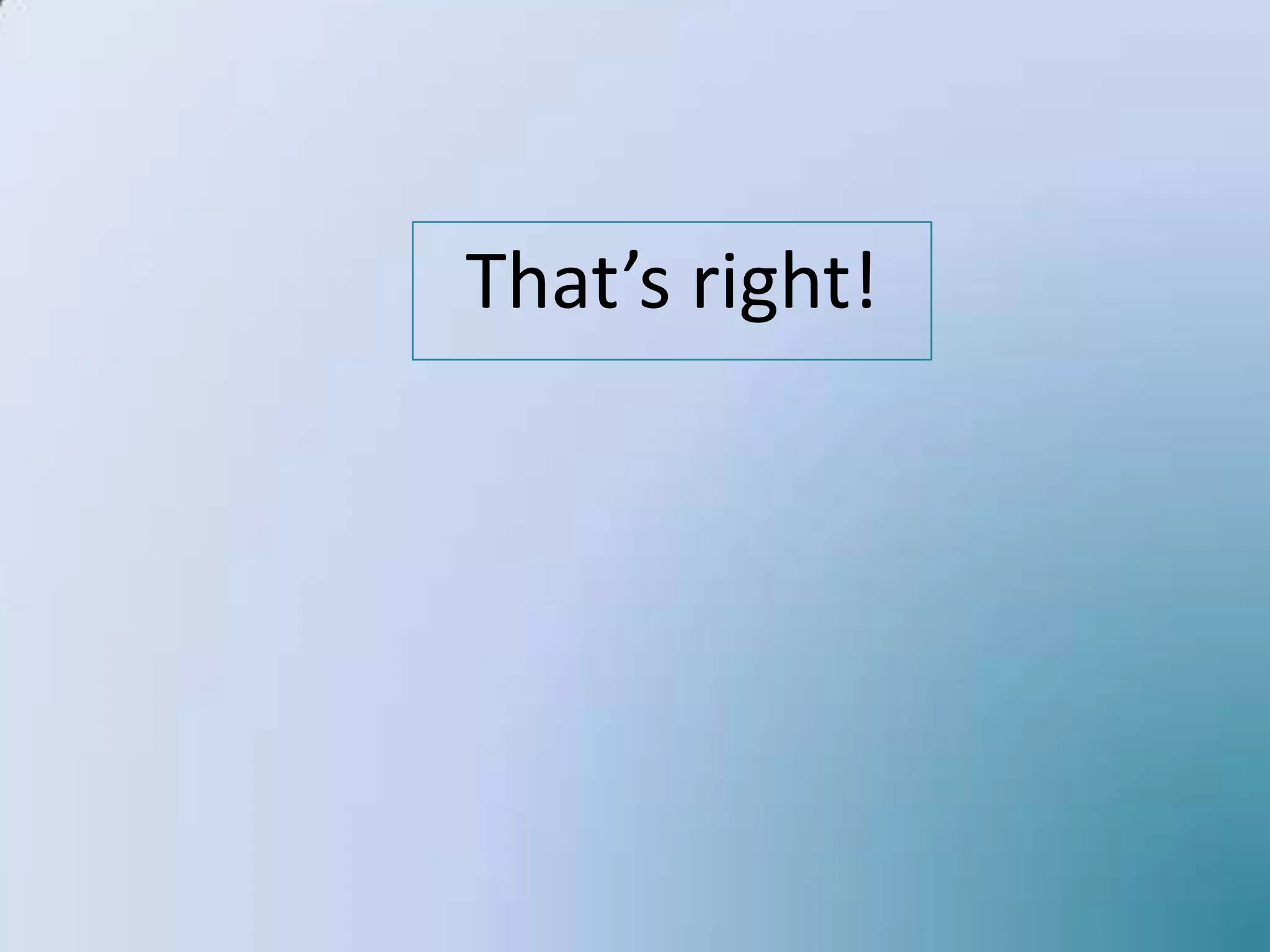
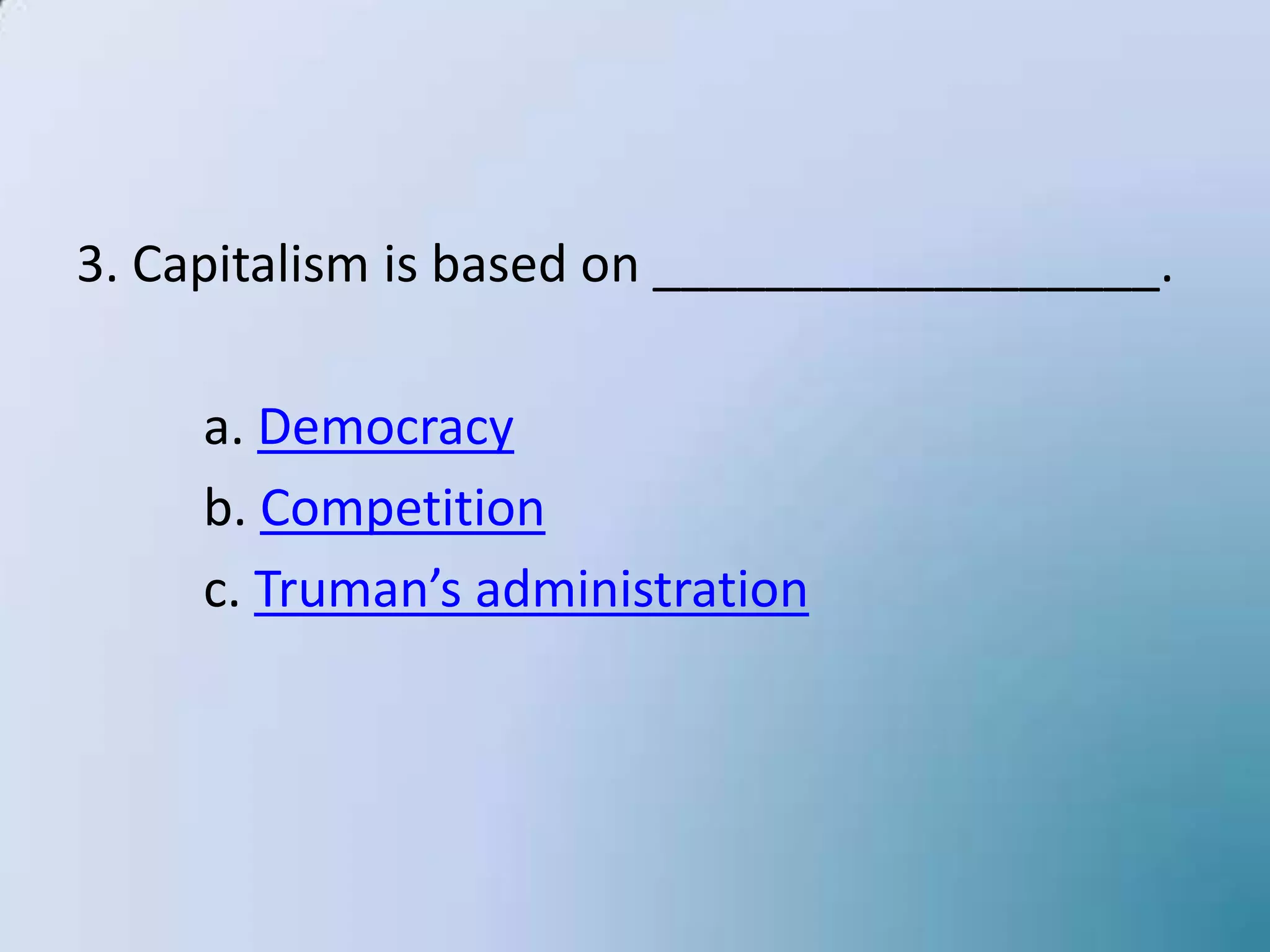
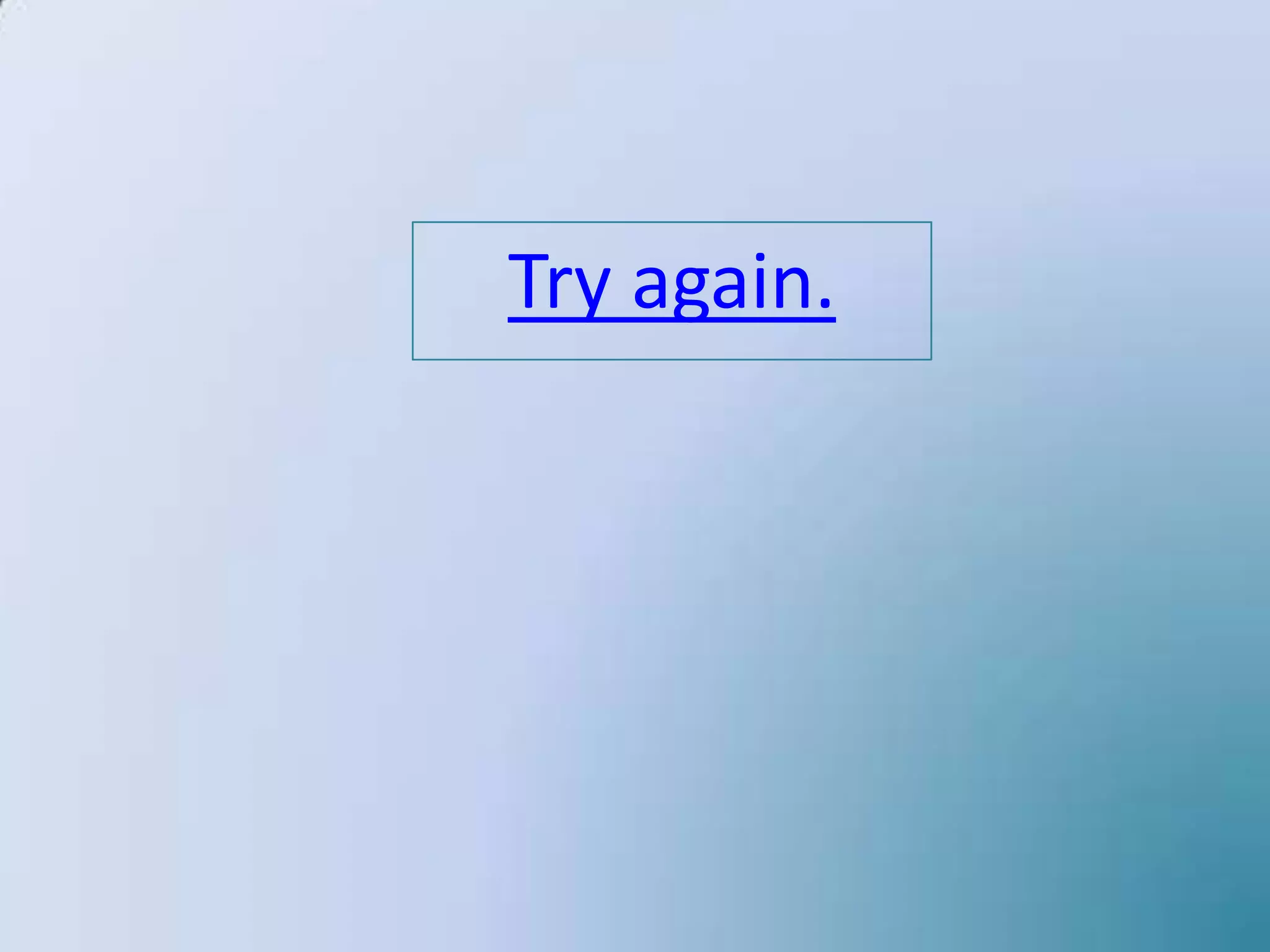
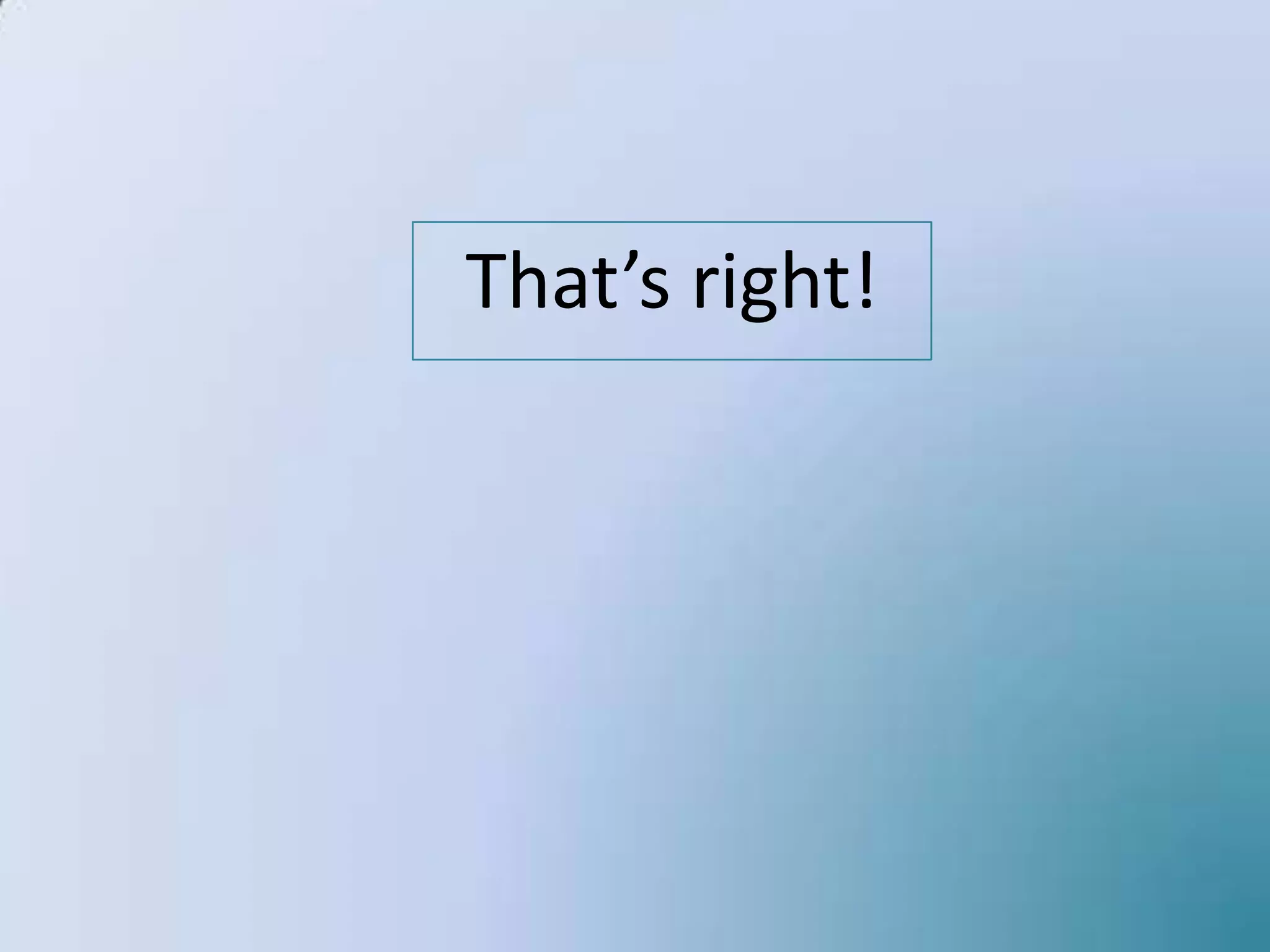
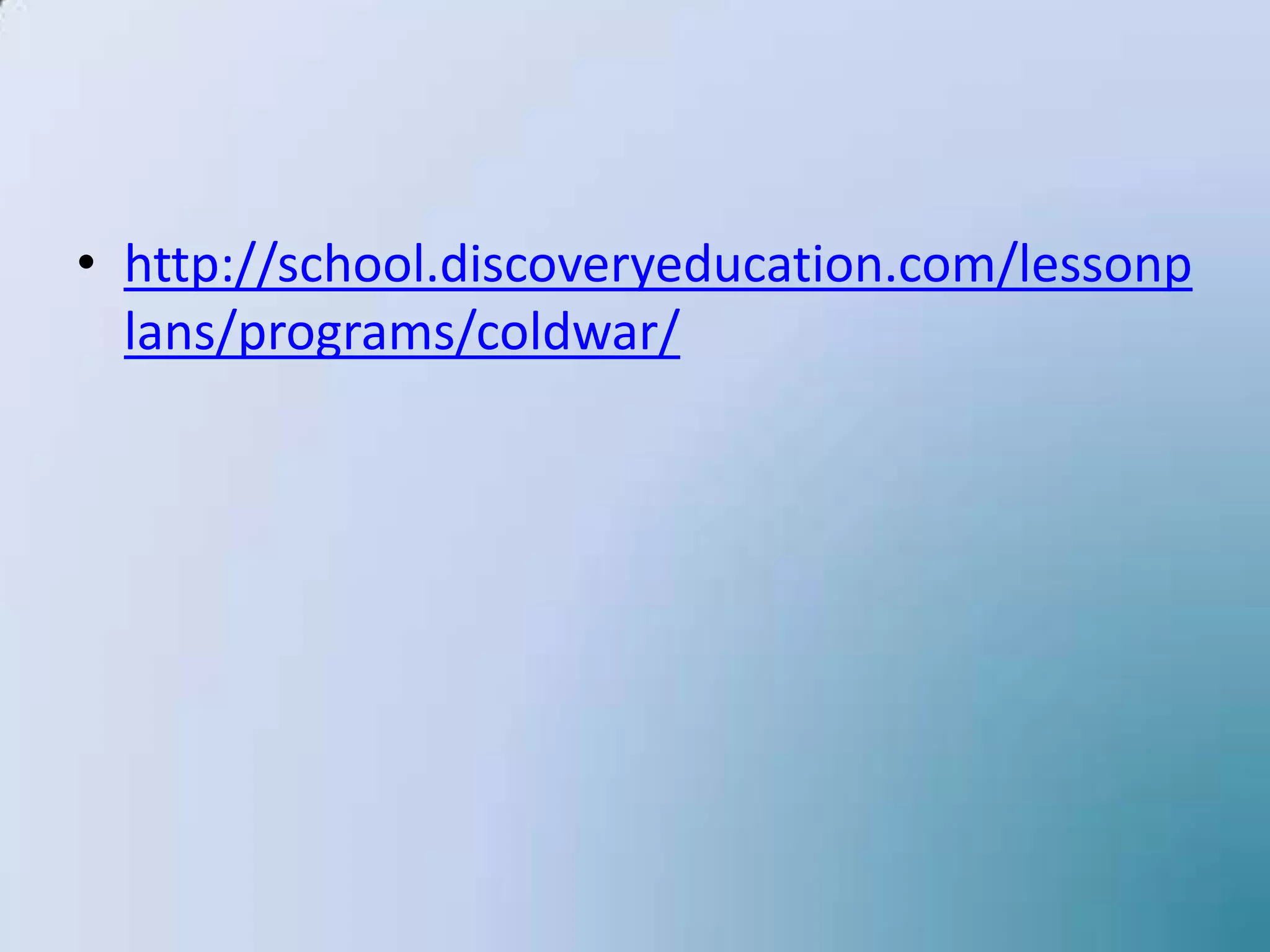
The Cold War began in the 1940s and represented the intense rivalry and distrust between Western capitalist nations led by the United States and Eastern communist nations led by the Soviet Union. This rivalry was defined by an arms race, including nuclear weapons, as well as competition for power and influence across the globe. The two opposing sides had vastly different economic and political ideologies, with the West favoring private ownership and democracy while the East advocated for state control and a classless society under communism. This conflict lasted over 40 years and defined global events like the building of the Berlin Wall and Cuban Missile Crisis.
















